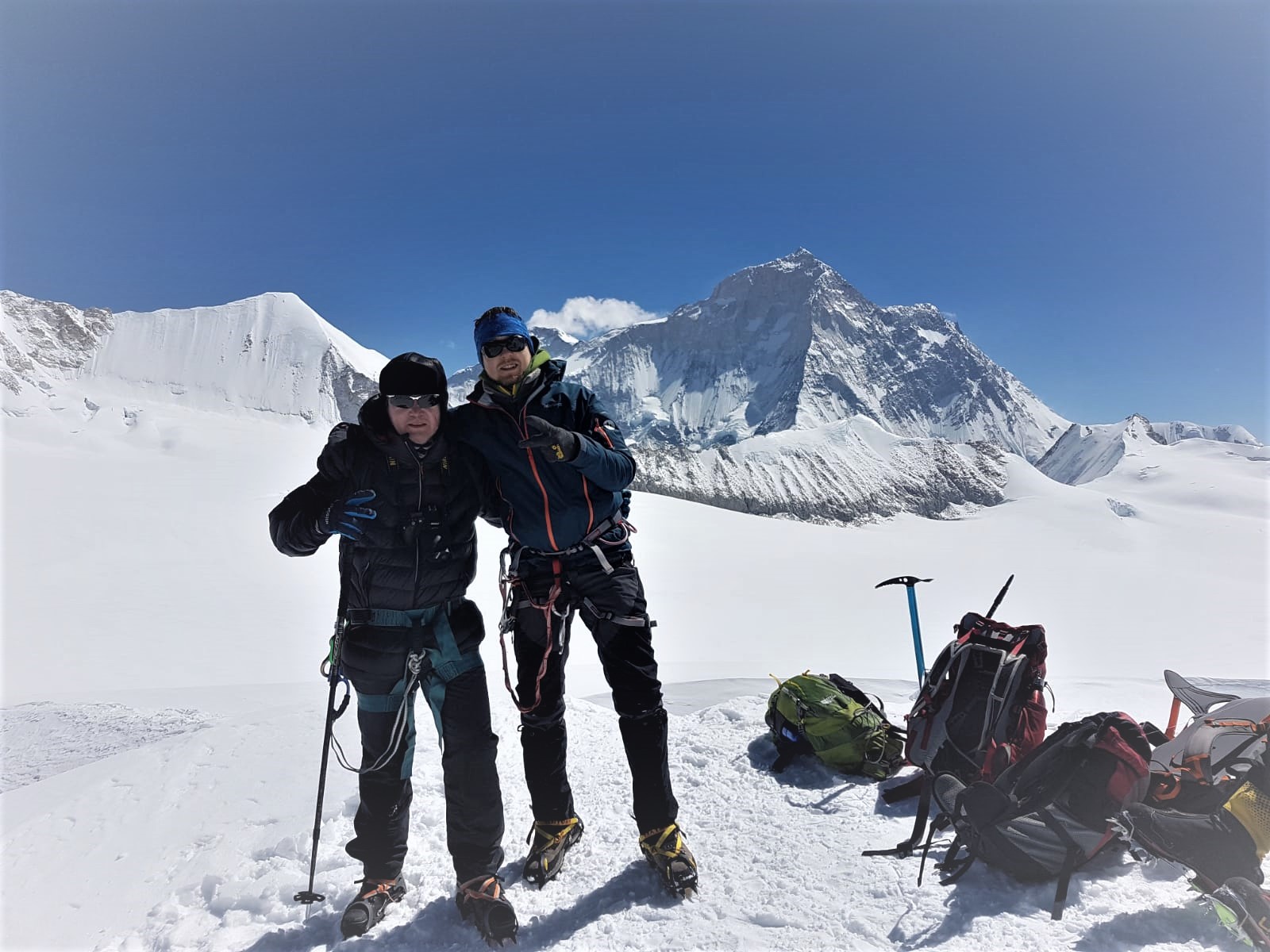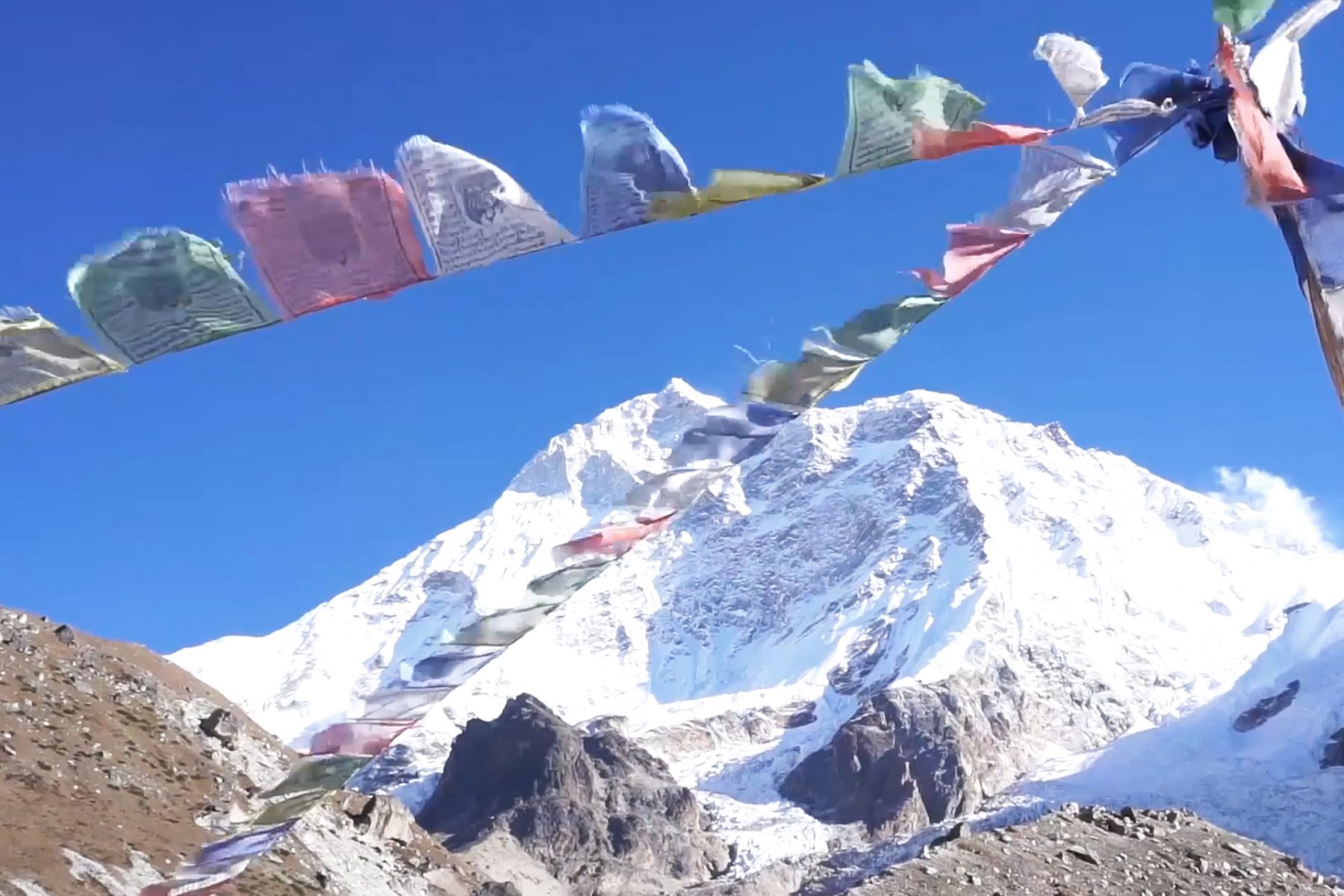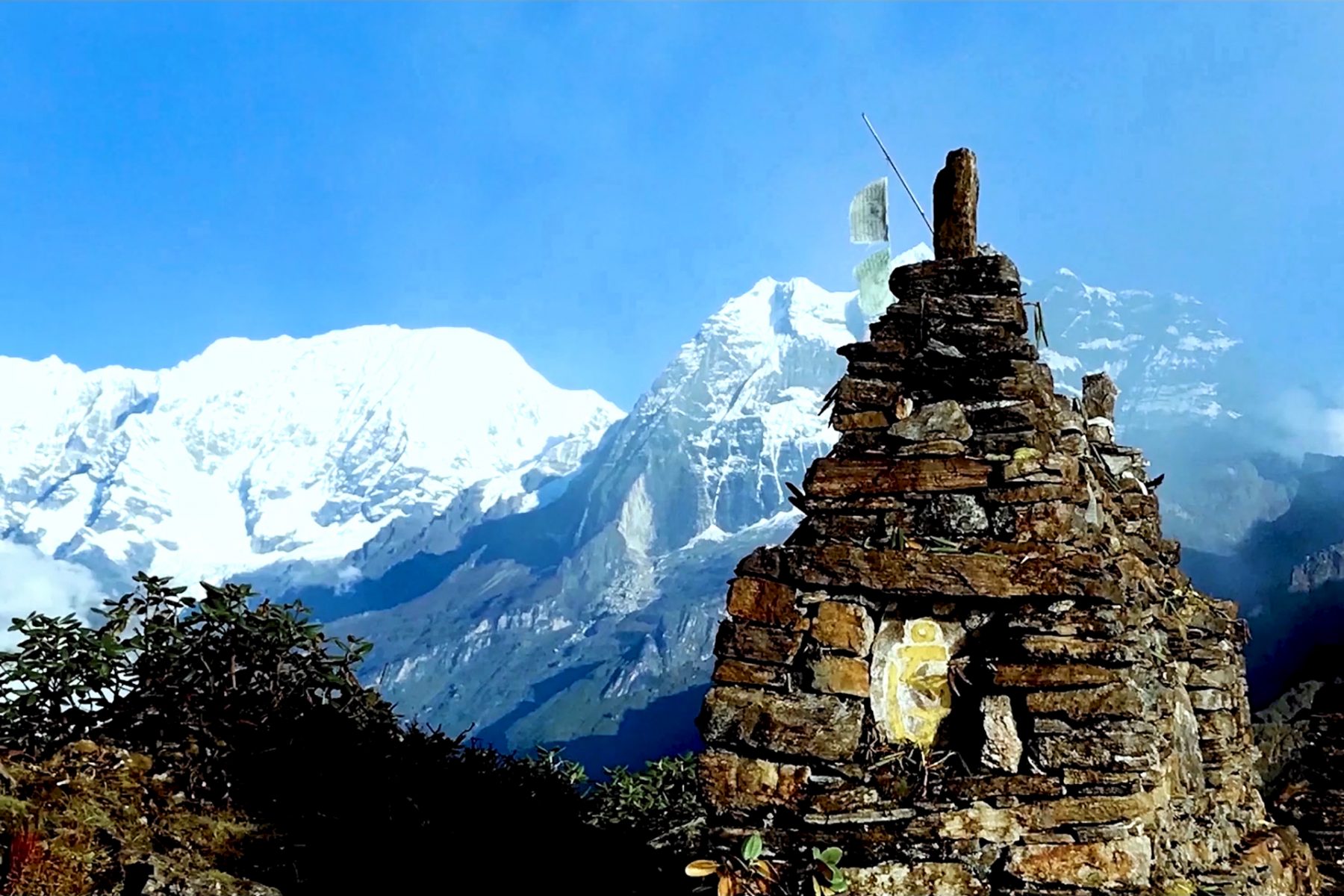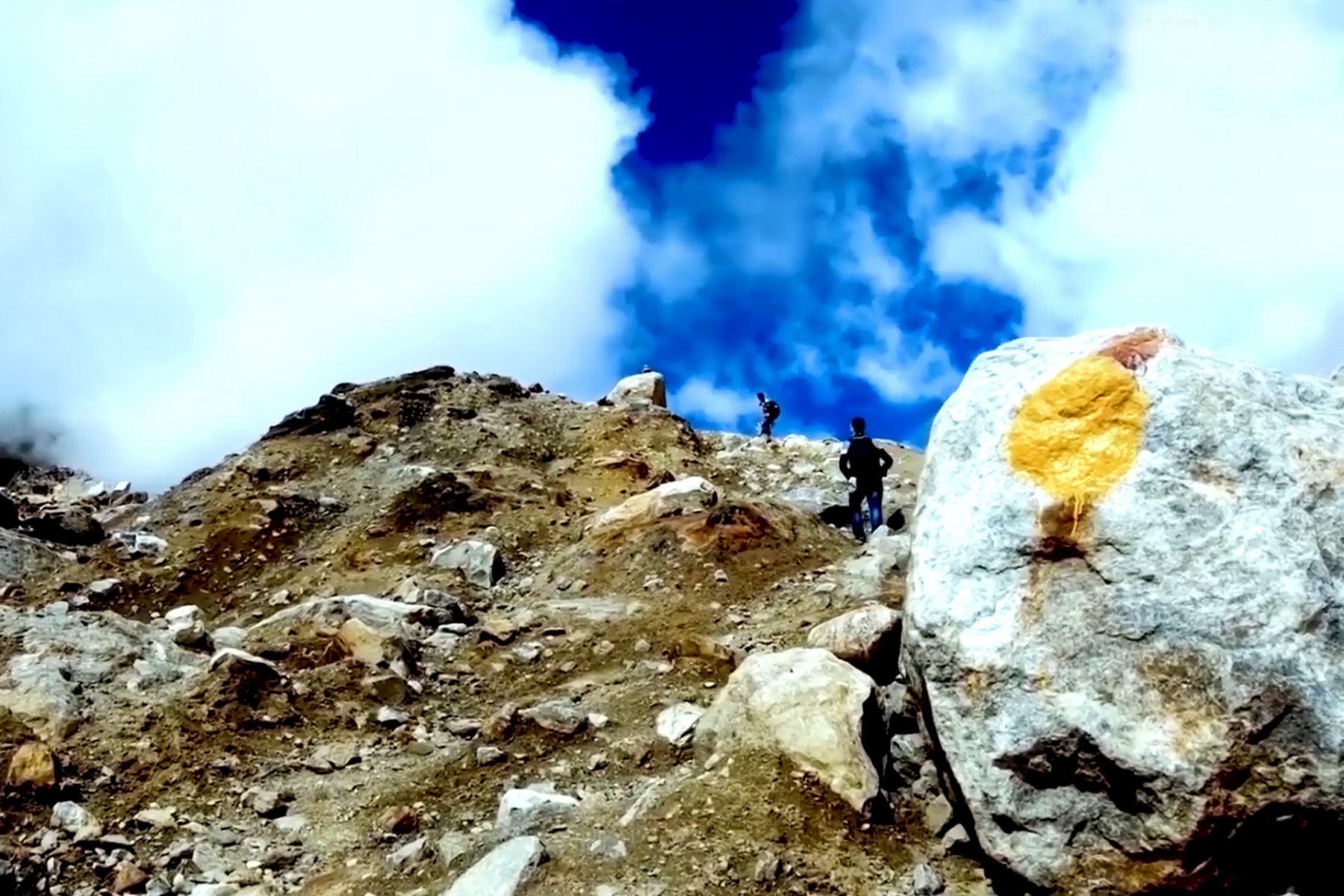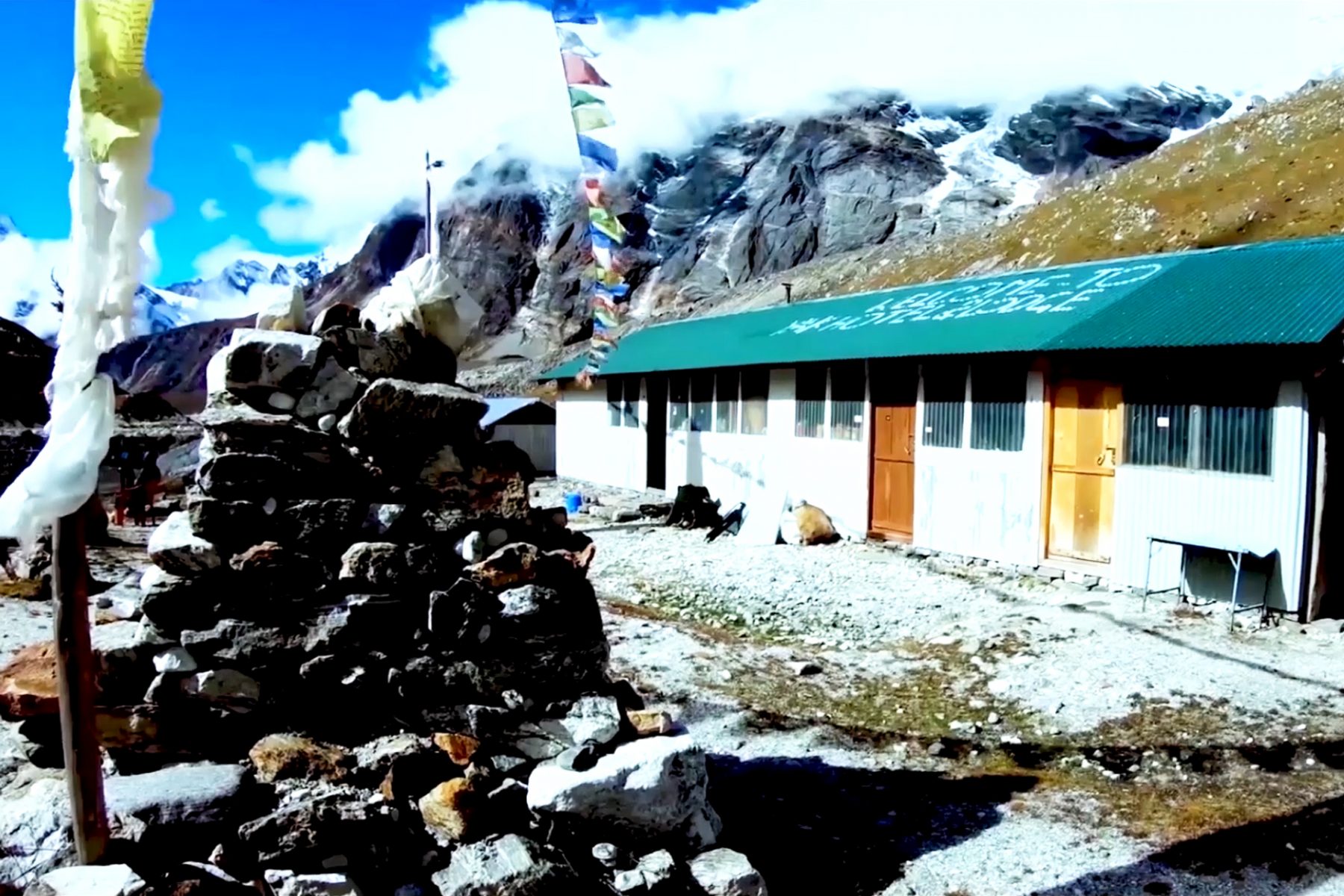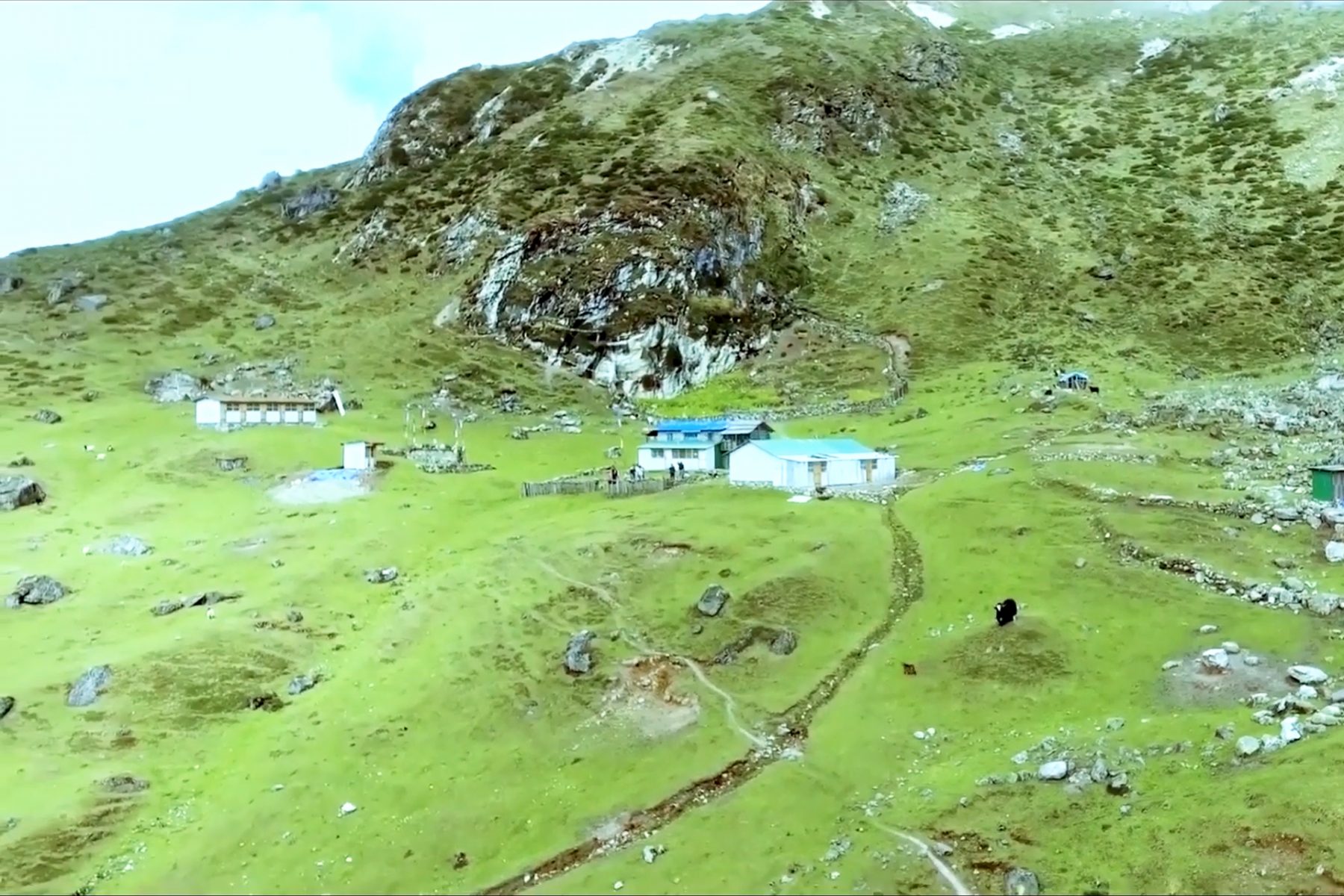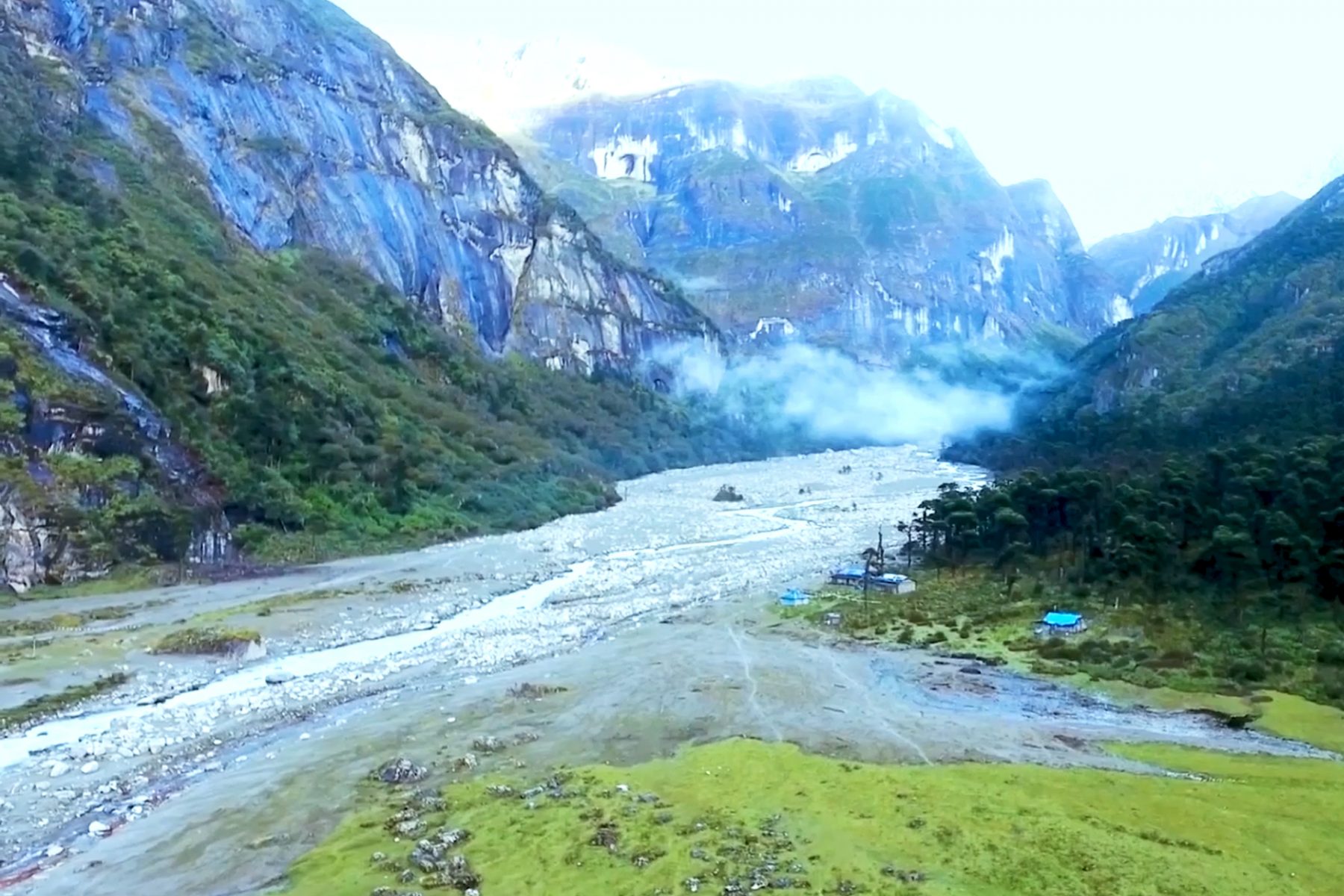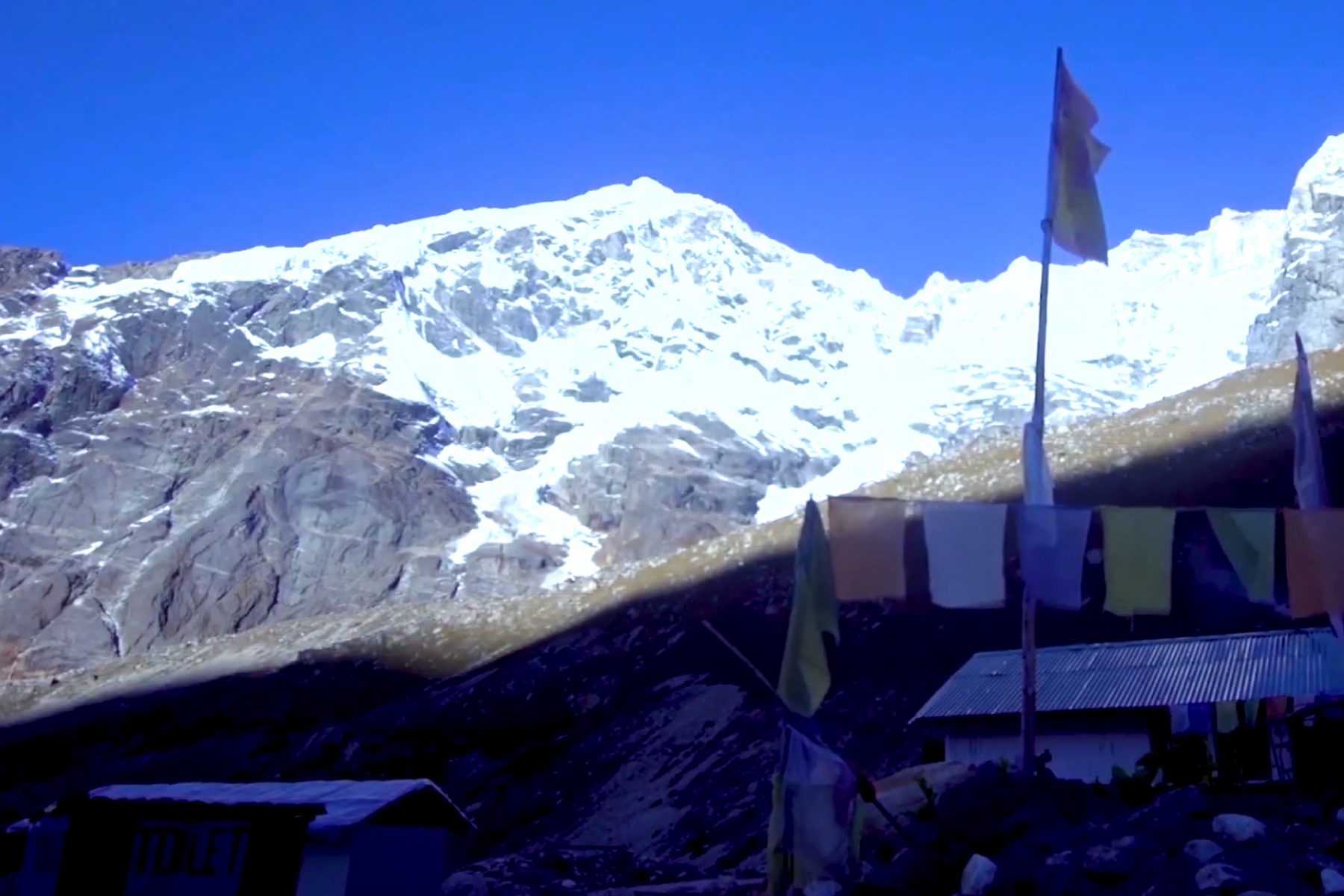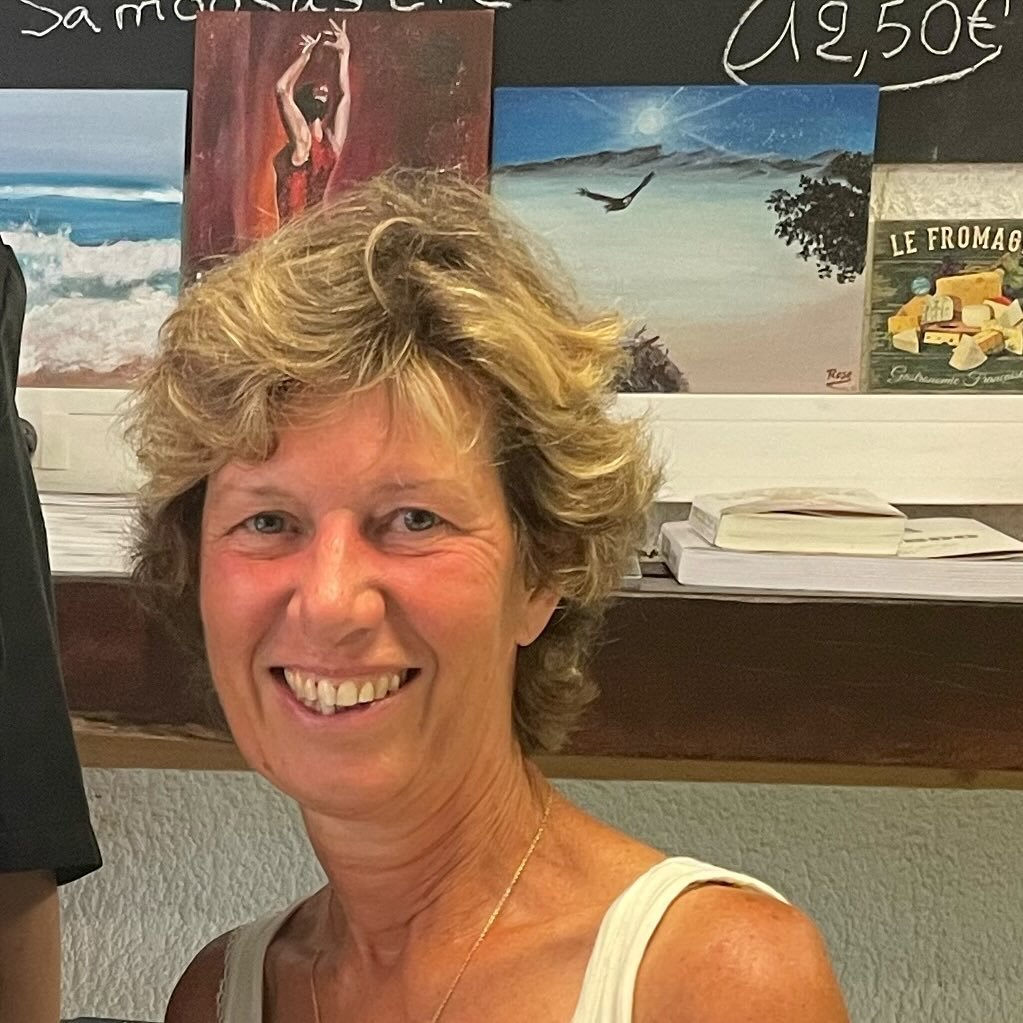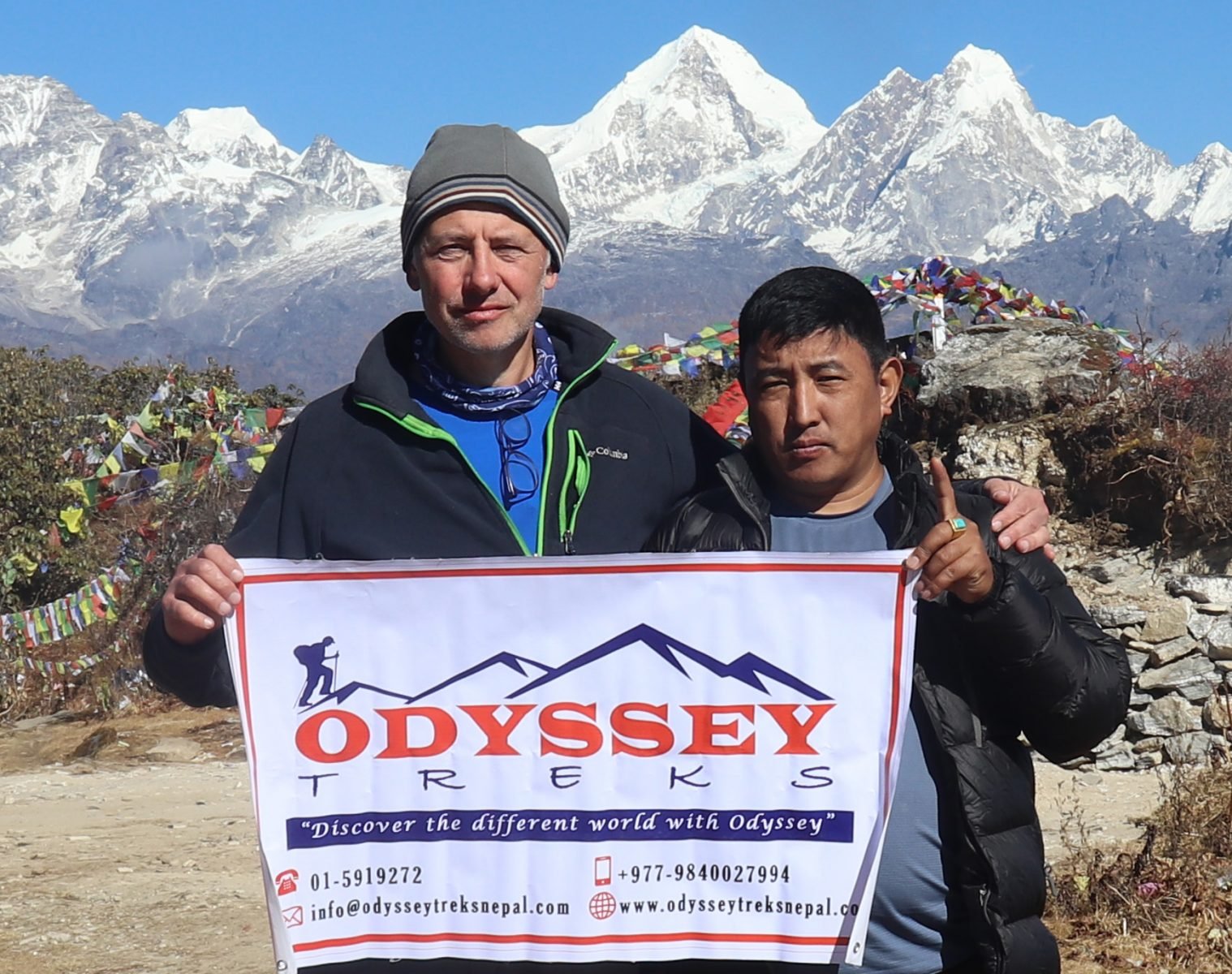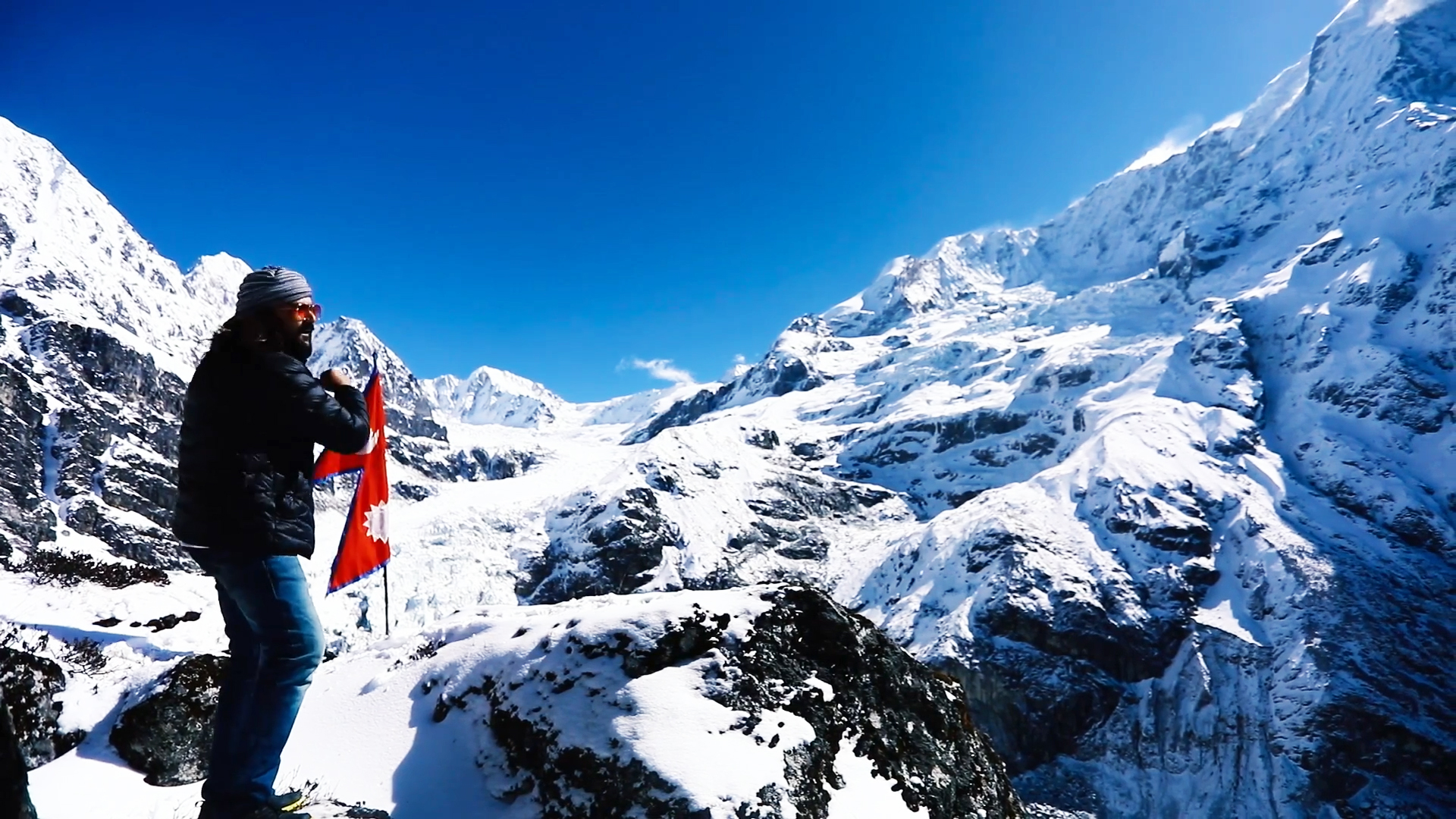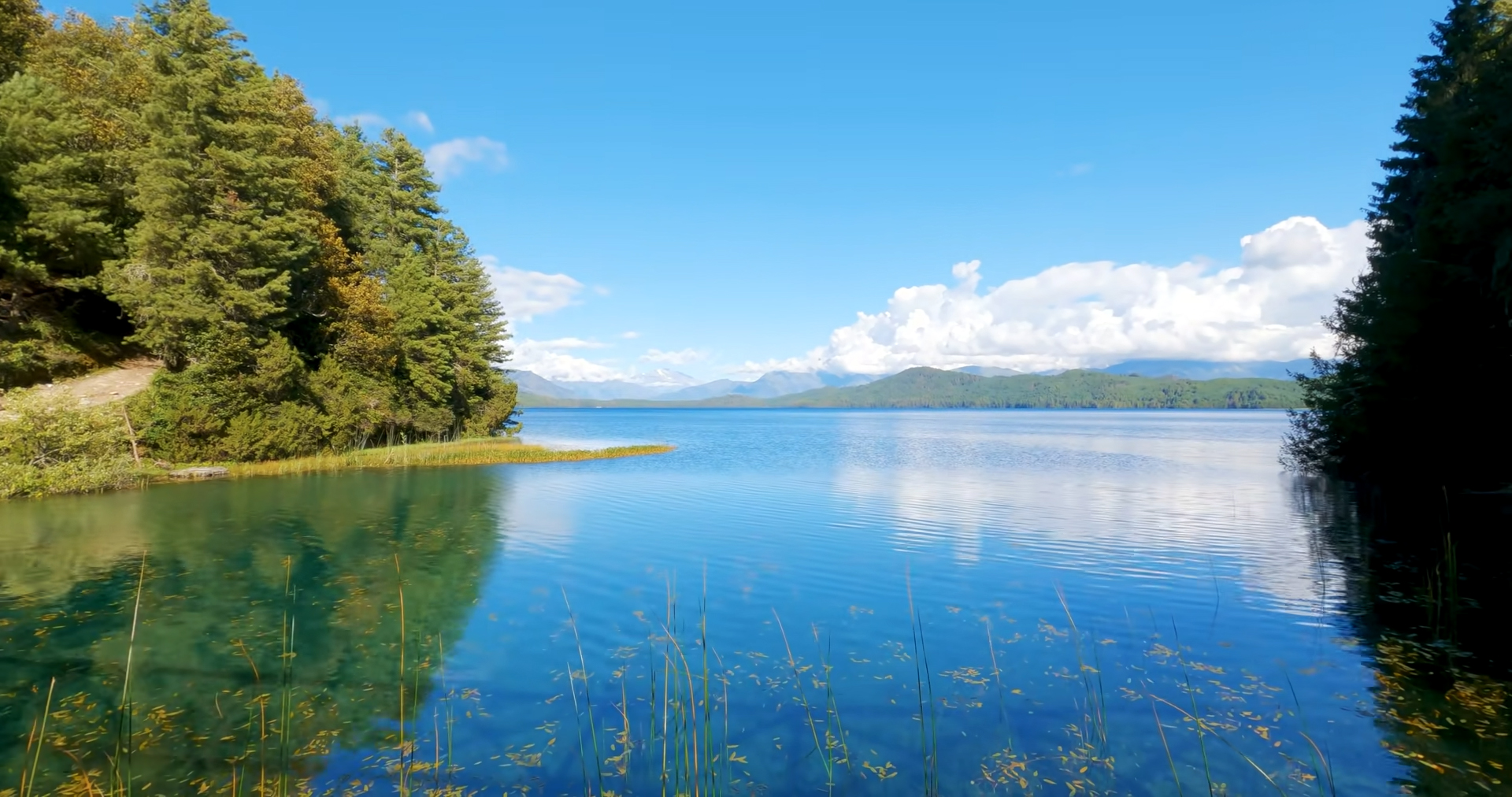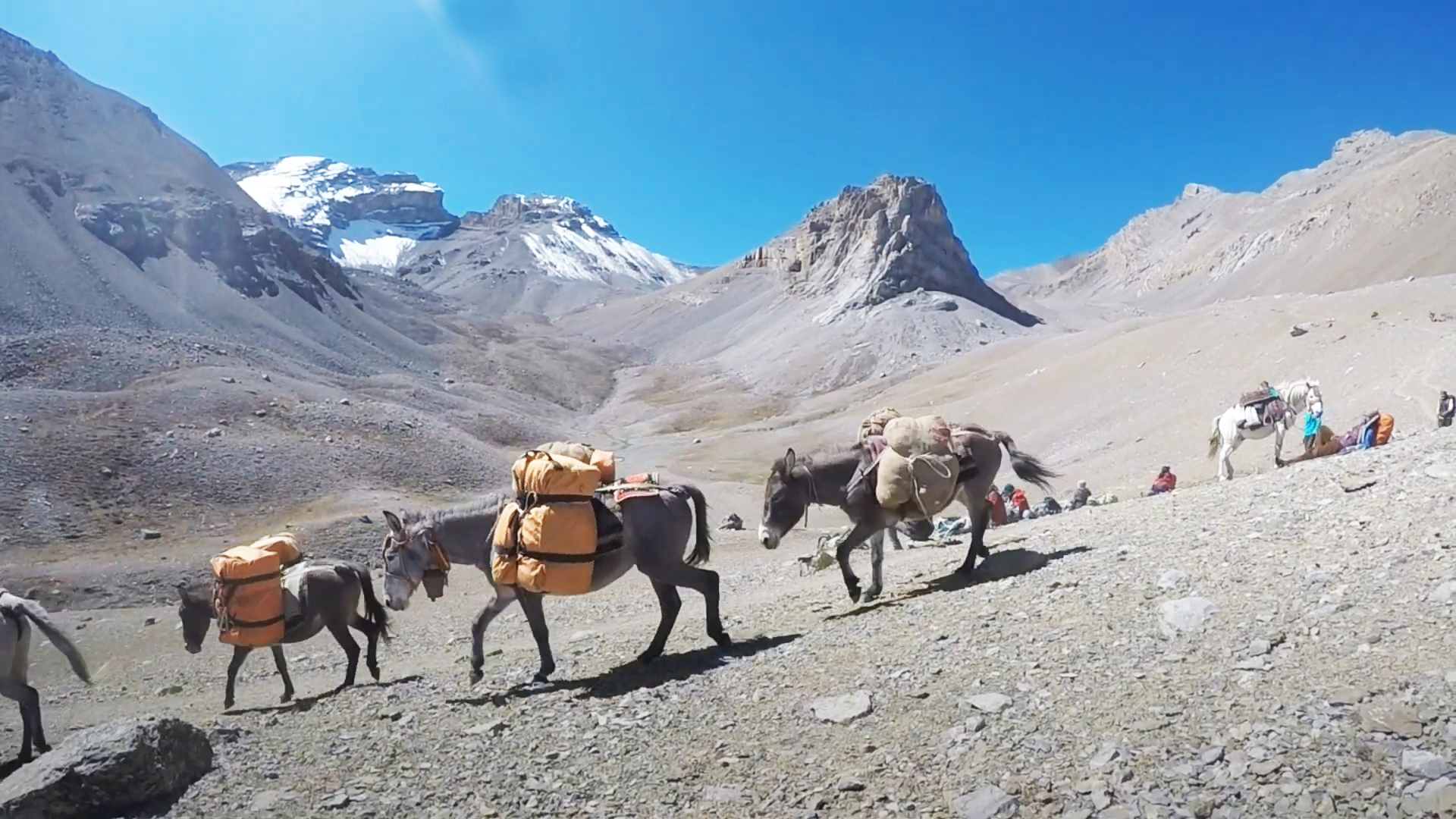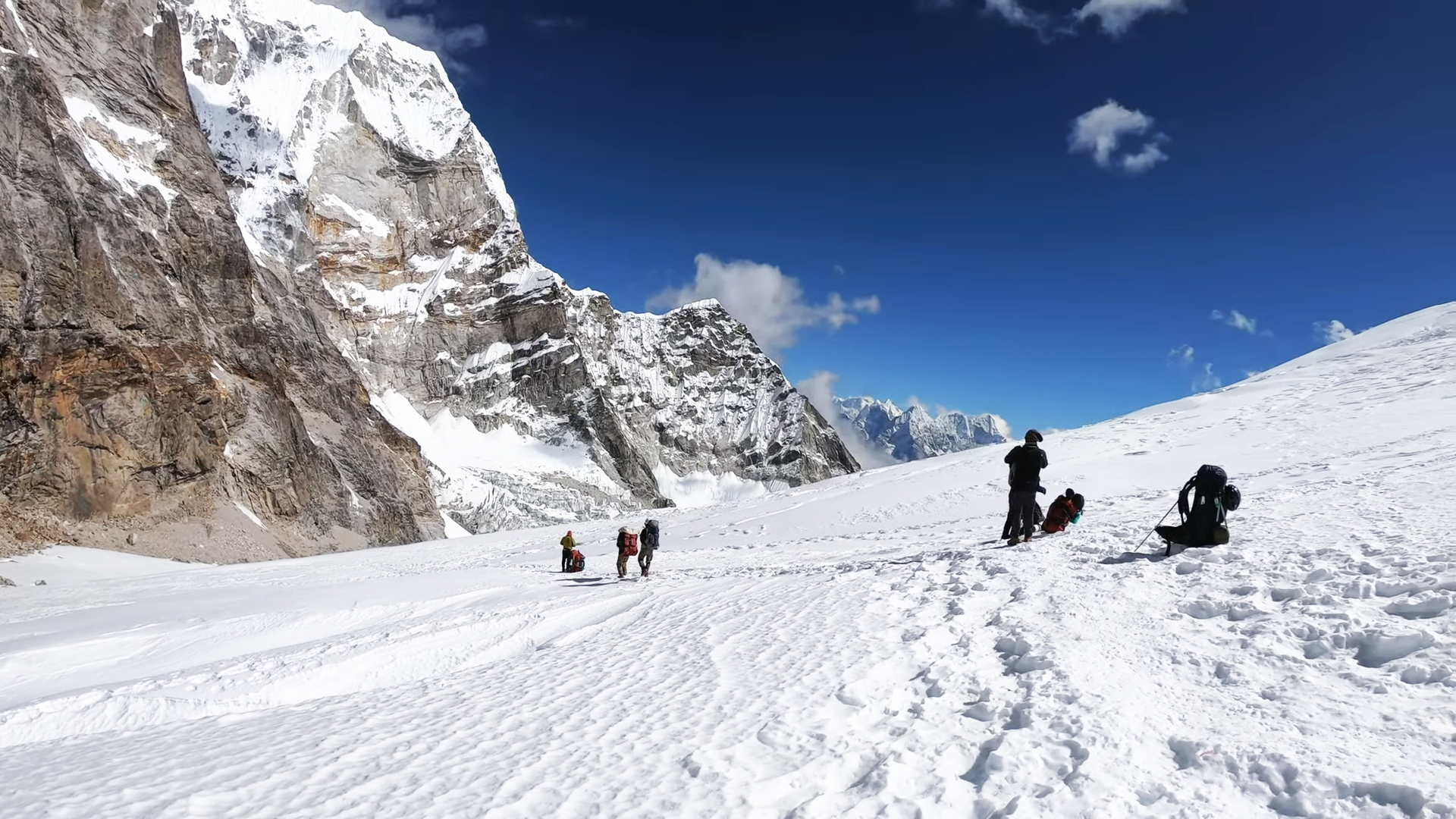Trip Overview
Introduction to Makalu Base Camp Trek
The Makalu Base Camp Trek is also known as the Makalu-Barun Valley Trek. The valley is located at the base of Makalu in eastern Nepal. Mount Makalu is the fifth-highest mountain in the world, with a height of 8485 meters. It is located in the Mahalangur Himalayas, on the border between Nepal and Tibet. The valley is within the Makalu Barun National Park. Makalu Barun National Park was established in 1992 and covers an area of 1,500 square kilometers.
Makalu Base Camp Trek is rich in natural beauty, including beautiful mountains, pristine forests, a variety of plants, animal life, warm-hearted local people, and traditional rituals. Rai, Sherpa, and Singsawa (Bhotia) farmers live in the lower part of the valley. The people living in the Makalu Barun area are economically poor and isolated. Although they are rich in cultural heritage and have well preserved it.
You may like to visit: Nagarjun Hiking, Distance, Cost, Package, Map, Itinerary.
The wonderful view of the beautiful mountains, rhododendron forests, beautiful rocks, glaciers, and amazing waterfalls that you encounter along the way makes your trek more exciting and surprising. Makalu Barun National Park has conserved 3000 species of flowering plants, 440 species of birds, and 75 species of mammals. There are animals like the snow leopard, musk deer, wild boar, red panda, wild yak, and Himalayan Thar, which you can see during your trip.
View of Beautiful Mountains
The area offers spectacular views of Makalu and other peaks, such as Mount Everest, Mount Lhotse, and Mount Baruntse. The beautiful view of Arun Valley will probably be the most beautiful thing about your trip. Many tourists want to do this trek, but the Makalu region attracts fewer passengers due to the inconvenience of its access and the beaten trekking trail. The trail to Makalu Base Camp is not flat. You are either going up or down, which makes the trek difficult or tiring.
High-pass snowfall is less likely in October–November and March–April. So, most trekkers and mountaineers visit the Makalu Barun area during this time. Makalu Base Camp Trek is a remote and isolated incredible trek in Nepal where tourists come to gather unforgettable experiences for a lifetime. It is a long, varied, and hard trek that is suitable for those who are nature enthusiasts and prefer to go to a quiet place rather than a crowded one.
You may visit: The Best of Nepal Tour in just 10 days, Package, Itinerary, and Cost.
Trip Itinerary
Fly Kathmandu to Tumlingtar (460m) and drive to Num (1,500m) – 6 to 7 hours.
Num to Seduwa (1,540m) - 7 to 8 hours walk.
Seduwa to Tashi Gaon (2,070m) – 5 to 6 hours walk.
Tashi Gaon to Khongma (3,560m) – 6 to 7 hours walk.
Khongma to Debotay (3,650m) via Ship ton La – 8 to 9 hours walk.
Debotay to Yangle Kharka (4,150m) – 6 to 7 hours walk.
Yangle Kharke to Lang male – 6 to 7 hours walk.
Lang male to Makalu Base Camp (5,000m) – 6 to 7 hours walk.
Free day at Makalu Base Camp.
Makalu Base Camp to Yangle Kharka (4,150m) – 8 to 9 hours walk.
Yangle Kharka to Dobate (3,650m) – 6 to 7 hours walk.
Dobate to Khongma (3,560m) – 6 to 7 hours walk.
Khongma to Tashi Gaon (2,070m) – 6 to 7 hours walk.
Tashi Gaon to Num (1,500m) – 5 to 6 hours walk.
Drive Num to Tumlingtar (460m) – 6 to 7 hours.
Fly Tumlingtar to Kathmandu – 1 hour.
Why not list the price?
Each client's needs may be different. The price of the trip varies according to the size of your group and the service you want. The cost of the trip is calculated according to the type of service and accommodation chosen by our customers.
Each trip is customized to fit the client's needs and group size, so the price of each organized trip is different. Please let us know the service you want and the size of the group. We create trips to suit your taste and travel budget per your requirements. Hope you find our price calculation reasonable according to your needs and preferences.
Frequently asked questions about this trip
How difficult is the trek?
The difficulty depends on where and how long you want to trek. The short trek is easy while the long trek requires some physical fitness.
What is altitude sickness?
Altitude sickness is normally known as acute mountain sickness. This can happen when people rapidly climb up to an altitude of more than 3000 meters. We ensure minimal risk by adding rest to our trekking itineraries. Most people will feel some effects of altitude, some shortness of breath and possibly light headache, this is normal enough. Acute mountain sickness patients are quite different and usually have a serious headache, sickness, and lose awareness. In almost all possible cases there are sufficient warning signs to take action properly. Descending to a lower altitude is usually enough to prevent any further problems.
What type of accommodation is available during the trekking?
There are mainly tea houses and lodges available for trekking and they are usually made using local materials and are very comfortable. These accommodations are often family-run and usually provide single and double rooms. The dining room is on the ground floor and is often on fire. All food will be cooked in order in the family kitchen. Toilet facilities are sometimes separate and sometimes outside. Most lodges provide mattresses and blankets. It's a good idea to always have a sleeping bag, which can be useful, and perhaps an inflatable pillow.
How long do we walk every day on trekking?
Trekking programs are classified into three different categories: soft, moderate and hard. Soft treks are only about 7 days to 10 days in duration. They generally do not go above 4000 meters; you can expect to walk about 4-5 hours each day. Moderate treks are challenging enough and long treks that go to the high hill country. Physically exhausting, this involves trekking along the cliffs of the mountains for about 6-8 hours. Harder treks are longer treks that go farther away from the general abode of trekkers and tourists. These physically challenging treks involve walking for 7- 9 hours each day.
How much weight do I need to carry on the trek?
You carry some of your personal belongings, such as warm clothing, water, snacks, sun block, cameras and more. Generally, these items will be lightweight, from 5 to 10kg (10 to 20 pounds). Our porters are available for other heavy goods and for your information one porter would be sharing by two people. The maximum weight carried by one porter is total 20 kg. this means 10 kg. per person is allowed for the trek. In case if you wish to carry more than this weight then you need to hire additional porters.
What is the best time for trekking in Nepal?
October and November are considered as the best times for trekking in Nepal due to dry season. December and January are also considered good times for trekking but it is extremely cold at high altitudes.
Google Reviews
Guest reviews
Thank you a lot for your organization about my trek. It was a superb experience; all was perfect. Karma is a very nice person and a good guide. I appreciated trekking with Odyssey (a reliable Nepal trek operator). If I come back to Nepal, I will be happy to...
Have just returned from my fourth trip to Nepal and as always Odyssey Treks organized everything superbly. We visited Makalu relatively late in the season and were rewarded with empty trails and amazing weather. Karma was as entertaining, friendly, and informative as ever along with Ang Dawa Sherpa who...

